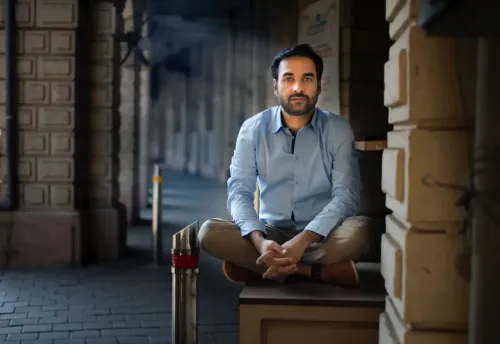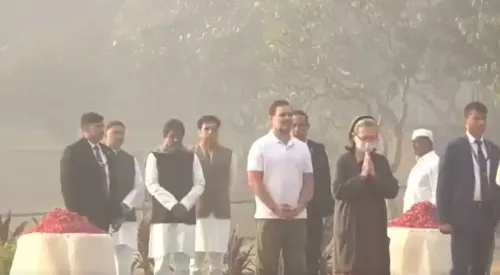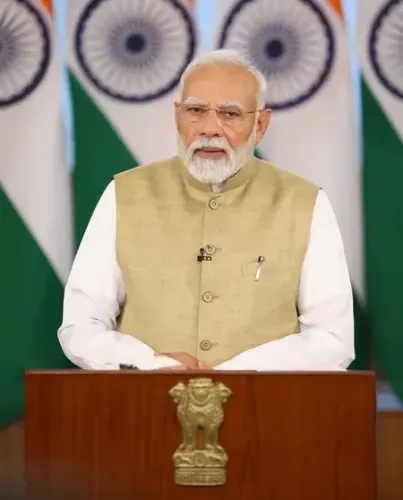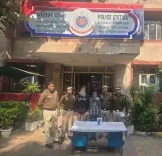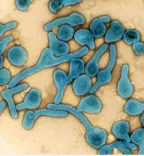Did PM Modi Honor Indira Gandhi on Her 108th Birth Anniversary?
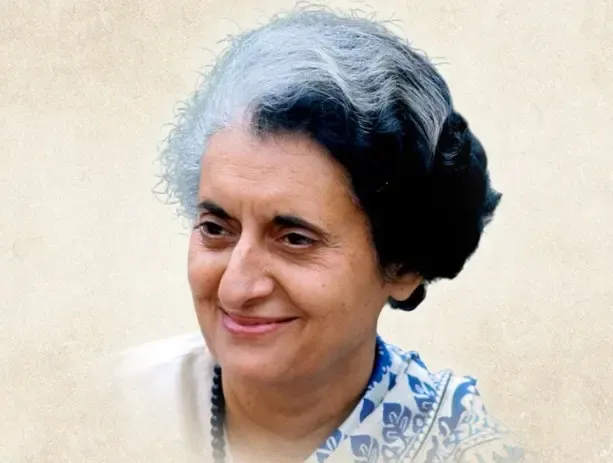
Synopsis
Key Takeaways
- Indira Gandhi was a trailblazer as India's first female Prime Minister.
- She played a crucial role in the freedom movement and governance.
- Her legacy continues to influence Indian politics today.
- She received numerous awards and honors for her contributions.
- Her education and background shaped her political journey.
New Delhi, Nov 19 (NationPress) Prime Minister Narendra Modi on Wednesday paid homage to former Prime Minister Indira Gandhi in celebration of her birth anniversary.
PM Modi shared his respects on the social media platform X, stating, “Tributes to former Prime Minister Smt. Indira Gandhi on the occasion of her birth anniversary.”
Indira Gandhi was born on this date in 1917 into a prominent political lineage, being the daughter of India’s first Prime Minister, Pandit Jawaharlal Nehru. Her education was at esteemed institutions, including Ecole Nouvelle in Switzerland, Ecole Internationale in Geneva, Pupils’ Own School in Poona and Bombay, Badminton School in Bristol, and Visva-Bharati University in Shantiniketan. She also studied at Somerville College, Oxford, and was honored with various honorary degrees from universities worldwide, including a Citation of Distinction from Columbia University.
From a young age, Indira Gandhi was engaged in the freedom movement, founding the Bal Charkha Sangh as a child and later creating the Vanar Sena in 1930, a group of children aiding the Congress Party during the Non-Cooperation Movement. She was jailed in September 1942 for her involvement in the Quit India Movement and worked in riot-affected areas of Delhi under the guidance of Mahatma Gandhi in 1947, providing support to victims of communal violence.
On March 26, 1942, she married Feroze Gandhi, with whom she had two sons. Her political journey advanced as she climbed through the ranks of the Congress Party, becoming a member of the Congress Working Committee and the party’s Central Election Committee in 1955. In 1958, she joined the Central Parliamentary Board of the Congress, served as Chairperson of the National Integration Council of the AICC, and led the All India Youth Congress, as well as the Women’s Department of the AICC. She became the President of the Indian National Congress in 1959, a role she held until 1960 and resumed in January 1978.
Her ministerial career commenced with her role as the Minister for Information and Broadcasting from 1964 to 1966. She ascended to the position of Prime Minister of India in January 1966, serving until March 1977, and then again from January 1980 until her assassination in October 1984. During her tenure, she held multiple key portfolios, including Minister for Atomic Energy (1967-1977), Minister of External Affairs (1967-1969), Minister of Home Affairs (1970-1973), and Minister for Space (1972-1977). In January 1980, she was appointed Chairperson of the Planning Commission.
Indira Gandhi represented the Rajya Sabha from 1964 to 1967 before being elected to the Lok Sabha in the fourth, fifth, and sixth general elections. In January 1980, she won seats from both Rae Bareli in Uttar Pradesh and Medak in Andhra Pradesh, ultimately choosing to retain the Medak seat. She also led the Congress Parliamentary Party from 1967 to 1977 and again from 1980.
Her remarkable achievements earned her numerous accolades, including the Bharat Ratna in 1972, the Mexican Academy Award for the Liberation of Bangladesh, the FAO’s Second Annual Medal, and the Sahitya Vachaspati Award. Internationally, she was awarded the Mothers’ Award in the United States, Italy’s Isabella d’Este Award for diplomacy, and Yale University’s Howland Memorial Prize.

